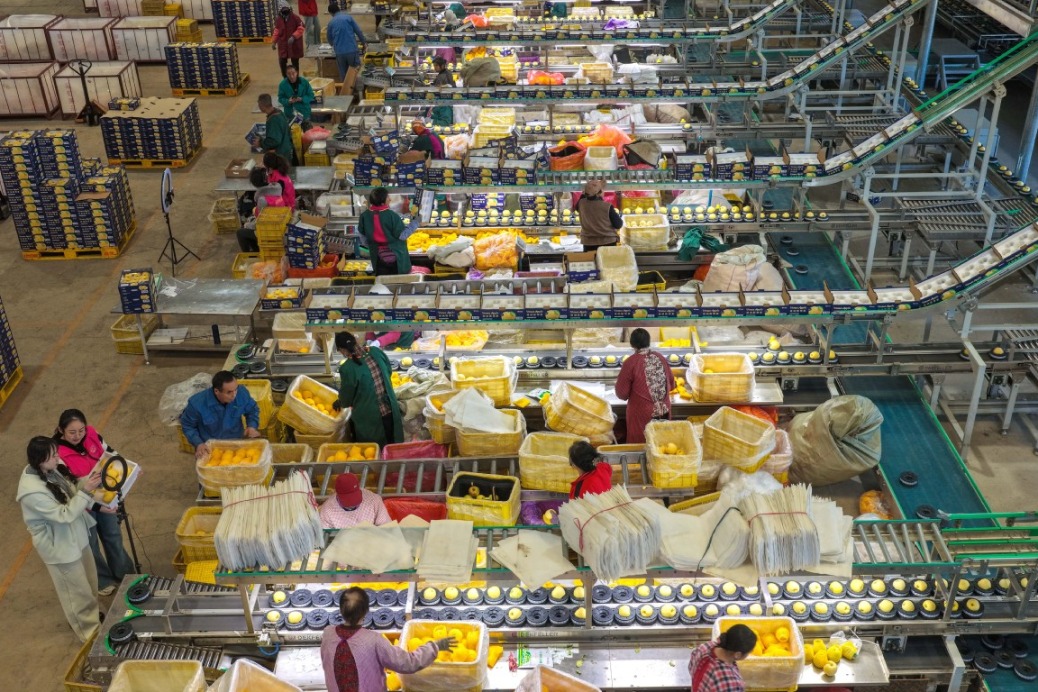The breaking point is not China's economy but US politicians' nerves


Sigmund Freud has a theory about human beings' defense mechanism: When a person unconsciously raises his or her voice in an argument and begins to speak aggressively, it is most likely an attempt to cover up a vulnerability or an insecurity.
This offers a valuable perspective on the noises made by Washington politicians as they keep touting the US as having the "best economy in the world" and doubting China's economic prowess.
For years, the US has been seeing an irreversible loosening of its grip on the global economy. According to the World Bank, the world's top economy has been shrinking as a share of global GDP—from 39.2 percent in 1960 to 25.4 percent in 2023, and its average contribution to global economic growth has tumbled from 20.5 percent to 9.5 percent. The share of the US dollar in global foreign exchange reserves has also fallen by more than 10 percentage points over the past 20 years.
Since 2023, some experts and media outlets have been warning that a US economic collapse more destructive than the Great Depression might be imminent, which can potentially trigger a chain reaction and cause significant global financial shocks.
When the going gets tough, the instinct of some politicians in the US is not to get its own house in order, but to sabotage competitors, politicizing economic and trade issues and imposing "long-arm jurisdiction" on other countries. Statistics from the US Department of the Treasury show that sanctions imposed by the US increased by 933 percent from 2000 to 2021. To date, it has imposed economic sanctions on nearly 40 countries, affecting almost half of the global population.
China has borne the brunt. A whole spectrum of tools are used: abusing tariffs, waging a trade war, hitting over 1,000 high-tech companies with sanctions, suffocating leading tech companies Huawei and ZTE under dubious national security claims, banning investment in China's high-tech sectors, and forcing other countries to sacrifice their own national interests to join the US' anti-China bandwagon. When to undermining a competitor, the world's dominant power is more than willing to toss aside the international rules it claims to champion.
Here is a confession; the former US ambassador to NATO Kay Bailey Hutchison admitted in an interview that "the best leverage" to deter China is to create an economic crisis within the country—if none of the major economies invests in China or creates jobs there, China's economy would collapse.
Did you think America's blockade of China was an exception? Professor Jeffrey Sachs of Columbia University warned long ago: "The anti-China policies come out of a familiar playbook of US policy-making. The aim is to prevent economic and technological competition from a major rival." History has witnessed the use of this playbook by the US time and again. As early as the 1980s, to maintain its lead in the semiconductor field, the US gave a heavy punch to Japanese companies like Toshiba, causing Japan's semiconductor market share to plummet by 40 percent. In the early days of the 21st century, to bolster its steel industry, the US preemptively imposed tariffs and import quotas on the European Union and other trade partners under the pretext of combating unfair competition. To maintain its energy dominance, the US employed state power to take down the French industrial giant Alstom. Just read Mr. Frédéric Pierucci's book The American Trap.
A sobering thought for all countries around the world: when you are seen as growing "too fast", America will find ways to slow you down.
Yi Fan is a current affairs commentator based in Beijing. The views don't necessarily reflect those of China Daily.
If you have a specific expertise, or would like to share your thought about our stories, then send us your writings at opinion@chinadaily.com.cn, and comment@chinadaily.com.cn.


































